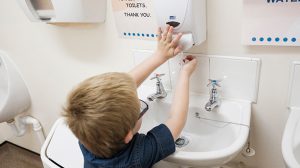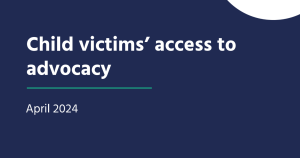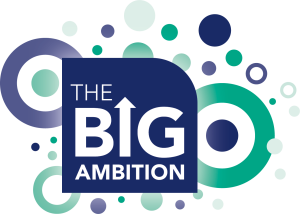Guarantee for education, support of disabilities and getting involved – a group of nine young people told us about their priorities for government
Last week, we spoke to nine young people aged between 13 and 17 who are members of the same youth parliament. They told us a bit about what they’ve been up to, what learning from home has been like, and most importantly, what they currently see as pressing issues for young people.
Theo, 13, said he finds lockdown quite boring. You can do exercise, or spend quite a lot of time on the XBOX. But he has been connecting with his family much more. Julia, 14, said she’s been reading more, and she liked that now she has more time to learn about something that she is interested in. So did Lily, 14. And also Laura, 14, quite liked her life being less cluttered. Now, there’s more freedom to choose what they like doing. Holly, 14, said that at first lockdown was a novelty but that now it’s got a bit same-y. She sometimes finds it hard as there’s no escape.
Their experiences with learning at home have been mixed. Lily felt sometimes she wasn’t challenged enough. And Theo said some of the work they’re set is very basic, it’s more reaffirming what he already knew and he wasn’t learning much. Whereas Clara, 13, said her homework was way too much sometimes. She had 13 pieces of homework the other day. Laura told us it comes down to the teacher, some are very passionate.
Maria, 17, trusts the teachers to be professional with grading, but she doesn’t quite know how she will be assessed. Laura was still concerned they might be seen as the cheat year, not getting the credit they deserve. Either way, Holly said that the education definitely has to improve. There were a couple of weeks when she didn’t learn anything.
Talking about the latest PM announcement, Holly felt it’s worrying that the rules are not clear; even though there’s a downwards curve, people could bend the rules because they’re vague. Laura was worried people will be going too far, too.
When we asked them about what they would say to the government, Holly said government should give guidelines to schools about what education should look like at home, and Laura added that there should be a guarantee for education till July for them. Laura also felt bad for children whose families are disfunctional and for whom school is an escape – what is happening for kids who live in these more difficult home environments?
Holly added that they can call a helpline, but they actually have to make that move. Someone needs to check in with them more, there could be more exceptions made for children to meet with their social workers, just so they have someone to talk to. Lily shared the experience of her autistic friend who would normally receive help with his work, but now he doesn’t, and doesn’t see the point in continuing with his learning. Mark, 16, said he would highlight that the state of educational mobility isn’t very good for children with disabilities; and he also stressed that a lot of jobs are now unavailable and that it will be difficult for 16 and 17 year olds to get jobs in the near future.
The group also agreed that it would be good for young people to get involved in working with and for the community. Maria, found it quite disappointing that it wasn’t possible for 16 and 17 year olds to volunteer for the NHS. Lily knew there seem to be volunteering opportunities, but you don’t know how to get involved with them really. Julia agreed. So the group thought it would be a good idea if there was something more structured for young people. One way to get involved could be through the national citizen service programme for example. Holly said being able to get involved would be fulfilling and would give you something to be proud of. It would also be helpful for young people’s CVs.
Holly said young people are being put to the side. “We want our questions to be answered”. But they can’t pose any questions as they’re under 18. Lily and Mark agreed that it would be really good to have something just for them to ask questions; and Clara said that actually the government should be listening to them most.
They would ask the government:
- For a clear school plan. Some schools that are better funded may have a better plan. And for more fun interactive lessons.
- How are we going to ensure that we learn all the things that we missed out on?
- We will have to accept that we will have missed out on education, and some people don’t even have access to a laptop. So the expectations for future exams must be lowered. How will exams change in the future?
- For clarity and reliant information about what they should be doing now following the latest the announcement.
- For a clear step by step guidance for the next few months.
- For lots more support for children who are suffering from domestic abuse.
- For more mental health awareness.
- For young people to feel like they’re contributing in this national emergency, giving them a sense to feel like they’ve done something useful during this time.
*All names are changed.*






